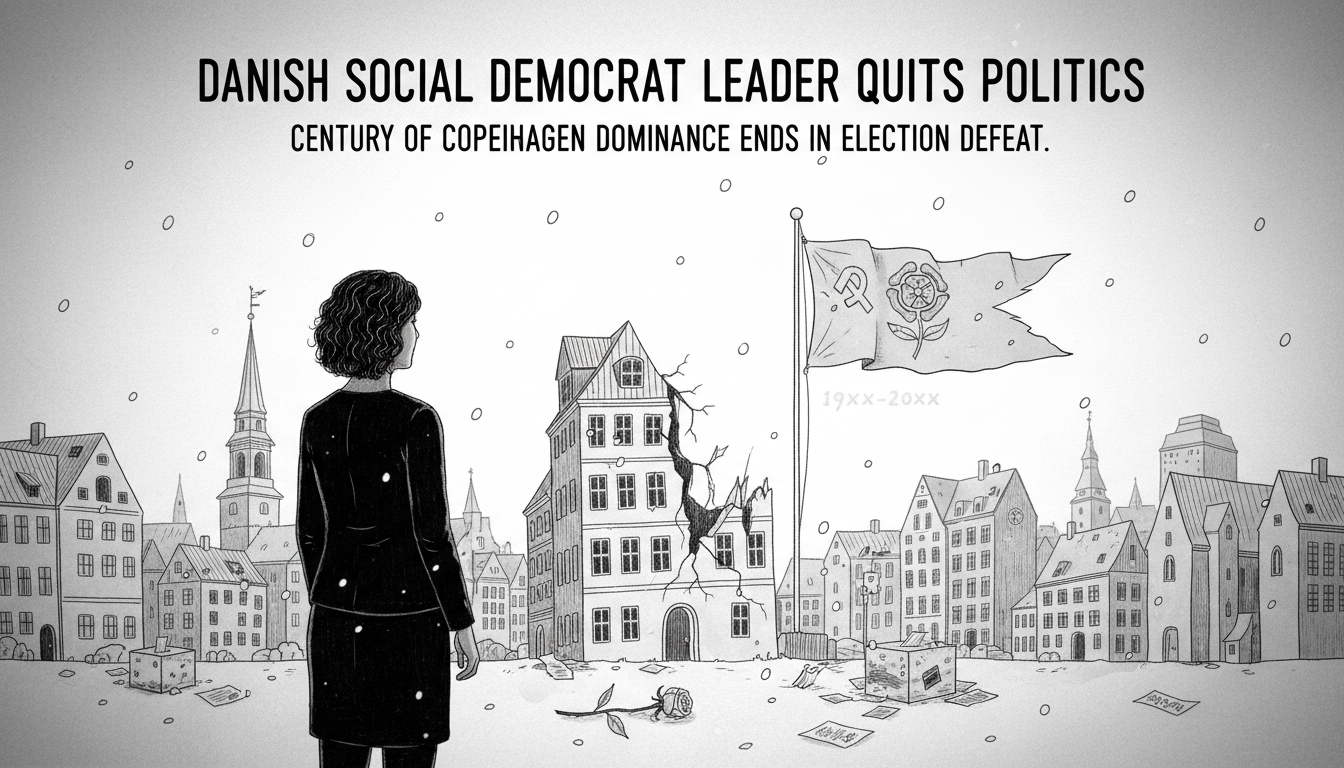Prominent Danish politician Pernille Rosenkrantz-Theil has announced her complete withdrawal from politics following her party's disappointing performance in local elections. The Social Democrat leader made the announcement just four days after voters went to the polls.
"I have decided to stop in Danish politics. I personally did not have a particularly good election in Copenhagen," she said in a statement. Rosenkrantz-Theil had campaigned unsuccessfully to become mayor of Copenhagen.
The Social Democrats suffered nationwide losses in the municipal and regional elections. They lost control of several traditional strongholds across Denmark. Most notably, the party lost power in Copenhagen after more than a century of political dominance in the capital city.
Rosenkrantz-Theil acknowledged her personal role in the election outcome. "Much of this election has been about me," she stated. "Therefore I will also stand in the way of being able to land Social Democratic results at city hall afterward."
This represents a major shift in Danish local politics. The Social Democrats have controlled Copenhagen's city government for generations. Their loss signals changing voter preferences in urban areas. The party now faces significant challenges in rebuilding support among city dwellers.
Danish political experts note this follows broader trends affecting center-left parties across Northern Europe. Traditional working-class parties have struggled to maintain support in increasingly diverse urban centers. The Copenhagen election results may indicate deeper structural changes in Danish voting patterns.
The timing of Rosenkrantz-Theil's departure raises questions about the Social Democrats' immediate future. Losing an experienced politician so quickly after an election creates leadership challenges. The party must now regroup without one of its prominent figures during a period of political transition.
International observers of Nordic politics will watch how Denmark's largest party responds to these urban setbacks. The Copenhagen results could influence political strategies across Scandinavia, where similar demographic shifts are occurring in major cities.
For Copenhagen residents and Danish political watchers, this marks the end of an era. The city will have new leadership for the first time in most residents' lifetimes. The coming months will reveal whether this political change represents a temporary protest vote or a lasting realignment.

